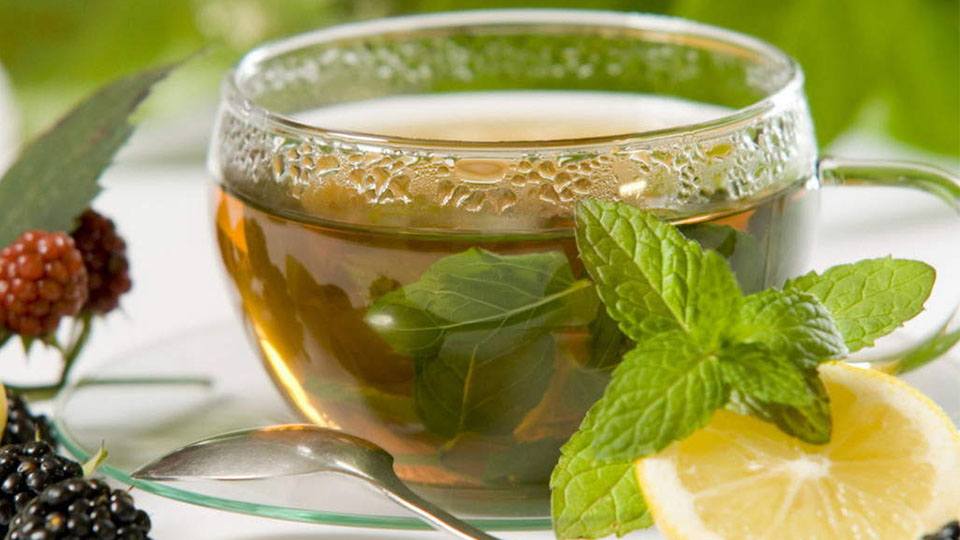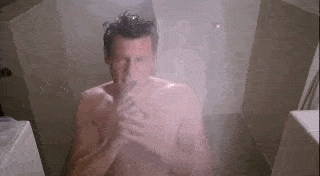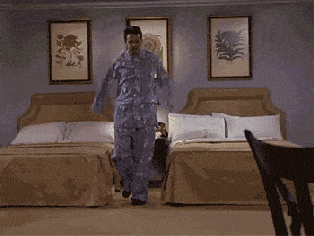When it comes to trying to fall asleep faster, people will try anything. Some will take medications while others may have a glass of wine before bed in hopes the alcohol will help. Others may try more creative things. As it turns out there are some things you can try to fall asleep faster that are backed by science! Let’s check them out.
1. Cool down your room
According to Robert Oexman, director of Sleep to Live, you should try keeping your room cooler at night. He recommends a room temperature of between 65F and 70F. He says that when we sleep, our bodies naturally cool down about a degree. If the room is too warm, it interferes with our natural cool-down process which can prevent you from getting good sleep.
2. Sleep in the dark
Studies have shown that sleeping in the dark can and will help you fall asleep faster and it will help you sleep deeper. Sleeping in darkness helps increase melatonin production which equals better sleep. Experts suggest using blackout curtains or a sleep mask. They also recommend facing digital displays away from you (or turning them off), and if you must have a nightlight then use a Blue light bulb.
3. Sleep in a quiet environment
It’s pretty much a no-brainer that silence helps us sleep. Experts suggest that we don’t use white noise in order to sleep better but that we actually use it to drown out other offending noises that may keep us awake. The best practice is simply to keep things as quiet as humanly possible. If there are elements outside of your control (sirens, dogs barking) then you can always use earplugs or noise cancelling headphones.
4. Use light bedding
We agree that nothing feels quite as good as it does when you cuddle up under a thick blanket in the middle of winter and warm up. Over the course of the night, that heavy blanket is going to actually be worse for you and your sleep. Experts recommend lighter blankets and loose clothing when it’s time to go to bed. Lighter bedding can be easily adjusted to keep your body temperature at an optimal range which experts agree will help you fall asleep faster.
5. Get some supplements or drink some herbal tea
Studies have shown that you can take a melatonin supplement and it’ll help you fall asleep faster. You shouldn’t make a habit of it because it can negatively affect your health long term. Every now and then in a pinch should be okay though. Another thing you can do is drink teas. Chamomile tea has long been considered an herbal treatment for anxiety, stress, and insomnia thanks to its calming properties. If brewing up a cup of herbal tea before bed helps you get to sleep, we can’t think of a reason not to do it!
6. Control your naps
There are times where we just need to take a nap. It’s been a long day and maybe you didn’t get that much sleep the night before. Taking a nap doesn’t usually affect your sleep unless you take one that is took long or too late. Most experts and doctors agree that 20-30 minute power naps are best for rejuvenating your energy during the day and that naps should take place no later than 3 P.M. or 4 P.M. Any later (or longer) than that and you’ll likely have trouble falling asleep later. Don’t sabotage yourself!
7. Hack your body temperature
Sleep scientist Penelope Lewis recommends that you hack your body temperature before sleep. According to studies (which I talked about earlier), your body cools down when you sleep. Knowing this, you can actually trick your body into believing it’s going to sleep by artificially raising your body temperature before going to bed. This can involve taking a hot bath or shower or just dipping your feet into hot water. When you go to bed in your cooler room, your body will believe it is ready for bed because it cools down. Just like it does when you’re asleep. Combine this with other items on this list and it actually does help you fall asleep faster.
8. Change how you breathe
Have you ever sat down and thought about how you breathe when you’re relaxed? It’s not the same way you breathe when you’re active or alert. We naturally take deeper breaths when we’re relaxed and much deeper breaths when we sleep. Thus, you can get your body in the mood for sleep by breathing as though you’re relaxed. Eventually, this will well your brain and your body that it is time to let the defenses down and go to sleep. Then you’ll fall asleep!
9. Perform light mental exercises
Dr. Vicky Seelall recommends doing light mental exercises while you’re trying to sleep. One way she recommends is counting backwards from 100 using multiples of three. It’s challenging enough that you have to pay attention but simple enough that you can remain relaxed. Simple mental challenges like this can help take your mind off of the stuff that’s keeping you awake and help lull you into a state of relaxation. Soon after that comes the sleep.
10. If you can’t sleep, get out of bed
According to Dr. Eric Olson of the Mayo Clinic and Dr. Harneet Walia of the Cleveland Clinic, you should absolutely get out of bed if you can’t sleep. They state that if you remain in bed when you can’t sleep then you’re actually training your body and mind to be awake in bed instead of sleeping in bed. If you cannot sleep for 20-30 minutes after laying down then get back up out of bed and perform an activity elsewhere. Read a book in the living room, do some dishes, or something else. After a little bit you can then go back to bed to try again.
While there is no magic number for getting enough sleep, it is absolutely important that everyone gets enough sleep. If you want more information on sleep, here is an article from Harvard University that explains sleep, sleep patterns, and the importance of sleep. If you’re having trouble sleeping, give these tips a try!
Featured photo credit: Wikipedia via upload.wikimedia.org
















































